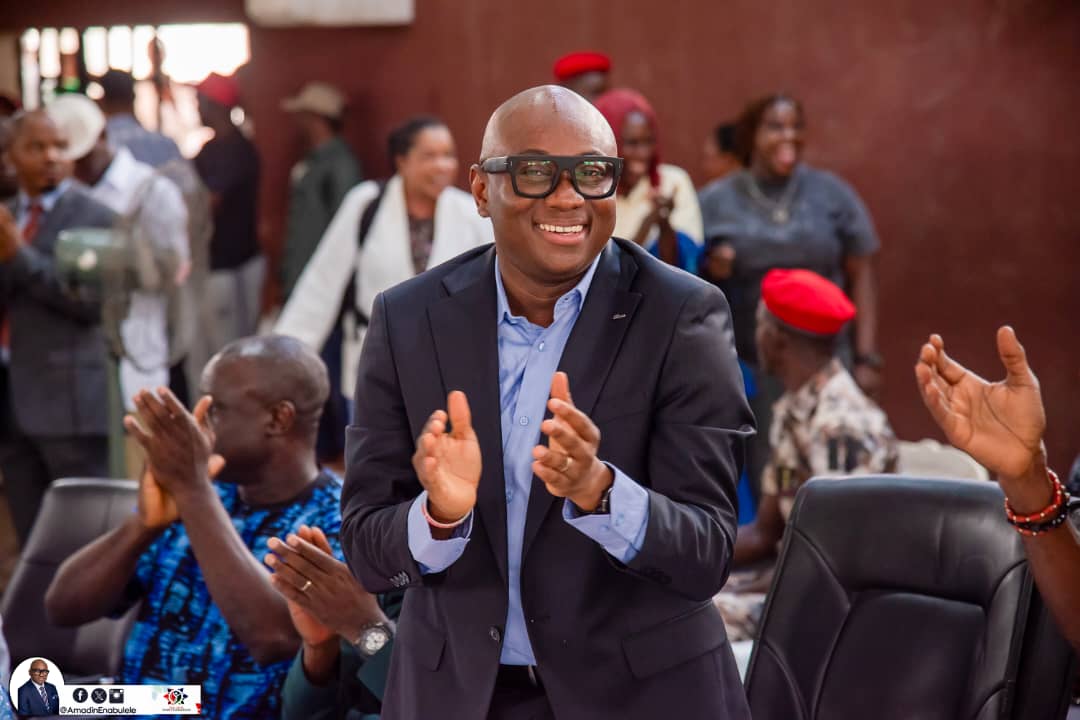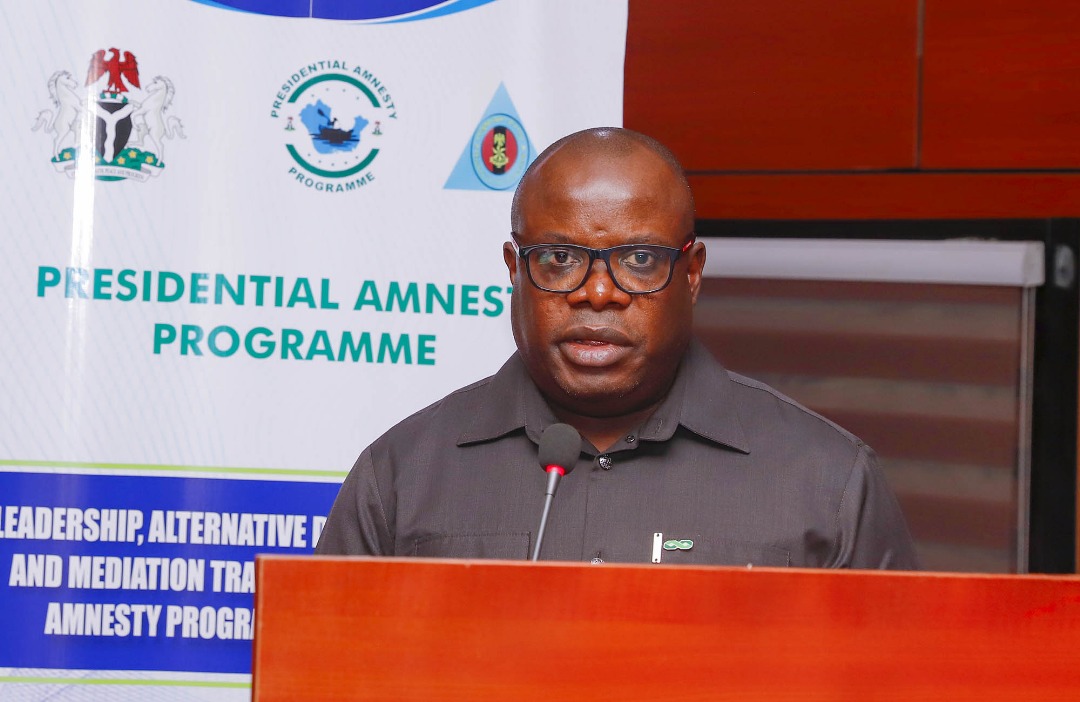News
JUST IN: Tinubu Returns To Nigeria After Visit To Qatar

President Bola Tinubu has arrived in Abuja after a two-day official visit to the State of Qatar.
The presidential jet, NAF 001, that conveyed the President landed at the Presidential Wing of the Nnamdi Azikiwe International Airport around 7pm, concluding his 12th foreign trip since assuming the Presidency nine months ago, and logging 75 days abroad.
Tinubu was received by top government officials including Vice President Kashim Shettima; his Chief of Staff, Femi Gbajabiamila; Secretary to the Government of the Federation, George Akume; Minister of the Federal Capital Territory, Nyesom Wike; Chairman of the All Progressives Congress, Abdullahi Ganduje; and the Director-General of the Department of State Services, Yusuf Bichi, among others.
On the first day of his visit, the Nigerian leader toured Qatar’s National Museum where he stressed the importance of accurate documentation of a nation’s history, cultural evolution and challenges.
READ ALSO: Peter Obi Knocks Tinubu Over Arrest Of BDC Operators
Touring the 39,994 square metre edifice centred around Sheikh Abdullah bin Jassim Al-Thani’s original palace, the President said, “It is great to document culture from the beginning of history, the culture of civilisation, collaborations, challenges and perseverance of leadership.”
The following day, Tinubu alongside the Emir of the State of Qatar, Sheikh Tamim bin Hamad Al Thani, witnessed the signing of seven landmark agreements between both nations after closed-door talks at the Presidential Palace in Doha.
They include: cooperation agreement in the field of education; regulation of employment of workers with the Government of Qatar; establishment of a joint business council between the Qatar Chamber of Commerce and Industry and the Nigerian Association of Chambers of Commerce, Industry, Mines, and Agriculture; in addition to a cooperation agreement in the field of youths and sports.
The other agreements are cooperation in the field of tourism and business events, and a memorandum of understanding combating illicit trade in narcotic drugs and psychotropic substances.
READ ALSO: Presidency Reacts As Qatar Allegedly Rejects Tinubu’s Visit, Business Talk
The documents were signed by the Minister of Foreign Affairs, Yusuf Tuggar, and relevant officials in the Government of the State of Qatar, Buthaina bint Ali Al Jabr Al Nuaimi, Minister of Education and Higher Education; Dr. Ahmad Hassen Al-Hammadi, Secretary General at the Ministry of Foreign Affairs; Sheikh Khalifa Bin Jassim Al Thani, Chairman of Qatar Chamber of Commerce & Industry and Abdullah bin Khalaf bin Hattab Al Kaabi, Undersecretary of the Ministry of Interior.
Later that Sunday, Tinubu presided over the Nigeria-Qatar Business and Investment Forum where he asked Qatari captains of industry to report any Nigerian official who demands any form of bribe before allowing them do business in the country.
He insisted that Nigeria will no longer be held back by its past dotted with bureaucratic bottlenecks and corruption that stifled ease of doing business.
“Do not offer a bribe to any of our people, and if it is requested or taken from you, report to us. You will have access to me,” Tinubu said.
READ ALSO: SERAP Sues Tinubu ‘Over Failure To Probe Missing $3.4 Billion IMF Loan’
The President also assured the international business community that Nigeria is ready for serious business as his administration will deal decisively with any and all entrenched interests in the country who undermine investor confidence in the Nigerian economy.
He also pledged to remove all bottlenecks standing in the way of profitable and legitimate enterprise saying, “Do not let perceptions become a hindrance to your will to invest. Nigeria is serious about revolutionizing investment promotion.”
Qatar is the third Gulf state Tinubu has visited since assuming the Presidency and his 16th foreign destination.
So far, he has visited Paris, France (thrice); London, the United Kingdom; Bissau, Guinea-Bissau (twice); Nairobi, Kenya; Porto Norvo, Benin Republic; New Delhi, India; Abu Dhabi and Dubai in the United Arab Emirates; New York, the United States of America, Riyadh, Saudi Arabia, Berlin, Germany and Addis Ababa, Ethiopia.
News
Former Delta North senator Peter Nwaoboshi Dies

Peter Nwaoboshi, the former senator representing Delta north, is dead.
Details of the circumstances surrounding his death were unclear at the time of this report, but according to reports, the former senator died in Abuja on Friday, aged 68.
In a statement, Sheriff Oborevwori, governor of Delta, expressed “profound grief” over the demise of the former lawmaker.
The governor described his demise as a monumental loss to the state, the Anioma nation, and Nigeria.
READ ALSO:Woman Taken For Dead Wakes Up Inside Coffin Few Minutes To Her Cremation
In a condolence message signed by Festus Ahon, his chief press secretary (CPS), Oborevwori hailed the late Nwaoboshi as a dedicated son of Delta and a bold champion of Anioma interests, whose legacy in nation-building will endure.
The governor said the late senator’s distinguished tenure in the national assembly, particularly as chairman of the senate committee on Niger Delta affairs.
“Nwaoboshi lived a life of service to his people, his party, and the country, bequeathing a heritage of bravery, loyalty, and commitment to public duty,” Oborevwori said.
READ ALSO:Fourteen Nigerian Banks Yet To Meet CBN’s Recapitalisation Ahead Of Deadline
“On behalf of the Delta State government and people, I mourn my dear friend, Senator Peter Onyelukachukwu Nwaoboshi.
“I extend deepest condolences to his family, the Anioma people, members of the All Progressives Congress, and everyone touched by his life.
“May God grant his soul peaceful rest and comfort to all who grieve this irreplaceable loss.”
News
Grassroots To Global Podium: Edo Sports Commission Marks Enabulele’s First Year In Office

The Indoor Sports Hall in Benin City came alive on Wednesday as the Edo State Sports Commission rolled out the drums to celebrate the first anniversary in office of its Executive Chairman, Hon. Amadin Desmond Enabulele. Management, staff, coaches and athletes gathered in an atmosphere charged with pride, reflection and optimism.
The colourful ceremony drew executives and members of various sports associations, officials of the Sports Writers Association of Nigeria (SWAN), coaches, athletes and other key stakeholders in Edo sports.
In her welcome address, the Acting Permanent Secretary of the Commission, Mrs. A. P. Amenze, praised Hon. Enabulele for what she described as focused and purposeful leadership. She said the past year had seen renewed confidence, discipline and energy return to the state’s sports ecosystem.
Adding excitement to the event were exhibition bouts and demonstrations by the Kung Fu, Karate, Taekwondo and Judo associations, staged in honour of the Executive Chairman.
READ ALSO:2025 NYG: Enabulele Charges Edo Coaches On Performance
Speaking for SWAN Edo State, Chairman Comrade Kehinde Osagiede commended Hon. Enabulele’s open-door leadership style and consistent support for sports development. He noted that the Commission had effectively driven Governor Monday Okpebholo’s “Catch Them Young” policy through practical grassroots programmes that identify and groom young talents across the state.
In recognition of his contributions to sports development and media relations, Comrade Osagiede conferred the Patronship of SWAN Edo State on Hon. Enabulele and presented him with a special anniversary card.
Goodwill messages followed from Executive Directors of the Commission, including Hon. Frank Ilaboya (Edo North), Coach Baldwin Bazuaye, MON (Edo South), Barr. Anthony Ikuenobe (Edo Central), and Mrs. Sabrina Chikere, Executive Director, Sports Development and Operations. Representatives of coaches, athletes and sports associations also took turns to acknowledge the progress recorded under the current leadership.
In his stewardship address, Hon. Enabulele expressed gratitude to Governor Monday Okpebholo and Deputy Governor Rt. Hon. Dennis Idahosa for the trust placed in him, noting that their backing and shared vision had driven the Commission’s achievements.
READ ALSO:Enabulele Lauds Okpehbolo For Creating Enabling Environment For Football To Thrive
He highlighted Team Edo’s third-place finish at the 9th National Youth Games in Asaba, where the state recorded its best-ever outing with 79 medals—33 gold, 18 silver and 28 bronze—reinforcing Edo’s reputation as a national sports powerhouse.
The Chairman also pointed to the impact of inclusive and grassroots sports programmes, citing Favour Ojeabu, a visually impaired para-cyclist who won three gold medals to emerge Africa’s champion at the African Track Para-Cycling Championship in Egypt.
Other milestones listed included outstanding performances by Edo para powerlifters on the international stage, historic achievements in cricket, weightlifting, cycling, judo and deaf athletics, as well as structural reforms such as the repositioning of Bendel Insurance FC and deeper investment in grassroots sports development.
Cultural performances added colour and tradition to the celebration, as stakeholders closed the event united in their assessment of the past year as a truly transformative period for sports development in Edo State.
News
Otuaro Tasks Media On Objective Reportage

The Administrator, Presidential Amnesty Programme (PAP) Dr. Dennis Otuaro has charged media practitioners particularly members of the Ijaw Publishers’ Forum to promote ethical journalism through their reportage.
He gave the charge in Warri on Wednesday during the 2nd Annual Ijaw Media Conference organised by the Ijaw Publishers’ Forum (IPF).
Represented by Princewill Binebai, spokesman, Ijaw Youth Council (IYC) Worldwide, Otuaro while stating that the Niger Delta stories have been told in such a way that is quite different from what is obtainable in the real sense, said this, IPF must do everything possible to correct.
The administrator added: “I am happy that Ijaw journalists have boldly come out together to champion the Ijaw struggle in a very dynamic perspective”.
READ ALSO:IPF Hosts Media Conference, Seeks Protection For N’Delta Environment
“The Ijaw story was misrepresented over the years, but IPF’s emergence had corrected this error and the story is gradually changing for better.”
Otuaro, however, challenged Ijaw media practitioners to be objective, truthful, accurate and fearless in their reportage to correct many years anomalies of the Ijaw struggle.
He admonished members of IPF to see themselves as brothers and love one another in the discharge of their activities to achieve a common goal.

 Metro4 days ago
Metro4 days agoSuspected Kidnappers Abduct 18 Passengers On Benin-Akure Road

 News4 days ago
News4 days agoI’m Not Distracted By Anti-Niger Delta Elements, Says PAP Boss, Otuaro

 News4 days ago
News4 days agoOPINION: Time For The Abachas To Rejoice

 News5 days ago
News5 days agoEdo Assembly Charges Contractor Handling Ekekhuan Road To Accelerate Work

 Sports3 days ago
Sports3 days agoJUST IN: Dembélé Named FIFA Best Men’s Player, Bonmatí Wins Women’s Award

 News3 days ago
News3 days agoWage Dispute: Court Orders PSG To Pay Mbappe €61 Million

 Metro4 days ago
Metro4 days agoNDLEA Seizes 457kg of Cannabis, Arrests Suspected Trafficker In Edo

 Headline3 days ago
Headline3 days agoAircraft Crashes In Owerri With Four Persons Onboard

 Business3 days ago
Business3 days agoCBN Revokes Licences Of Aso Savings, Union Homes As NDIC Begins Deposit Payments

 News4 days ago
News4 days agoEx-Nigerian Amb., Igali, To Deliver Keynote Address As IPF Holds Ijaw Media Conference
































